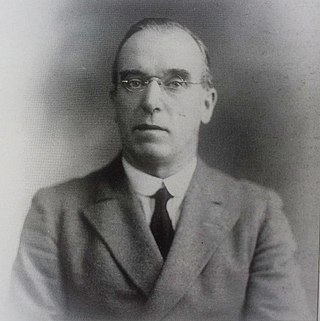
The United Kingdom has had a significant film industry for over a century. While film production reached an all-time high in 1936, the "golden age" of British cinema is usually thought to have occurred in the 1940s, during which the directors David Lean, Michael Powell, and Carol Reed produced their most critically acclaimed works. Many British actors have accrued critical success and worldwide recognition, such as Audrey Hepburn, Olivia de Havilland, Vivien Leigh, Glynis Johns, Maggie Smith, Laurence Olivier, Michael Caine, Sean Connery, Ian Mckellen, Joan Collins, Judi Dench, Julie Andrews, Daniel Day-Lewis, Gary Oldman, Emma Thompson, Anthony Hopkins and Kate Winslet. Some of the films with the largest ever box office returns have been made in the United Kingdom, including the fourth and fifth highest-grossing film franchises.

Twickenham Film Studios is a film studio in St Margarets, in the London Borough of Richmond upon Thames, that is used by various motion picture and television companies. It was established in 1913 by Ralph Jupp on the site of a former ice rink. At the time of its original construction, it was the largest film studio in the United Kingdom.

The Last Journey is a 1936 British drama film directed by Bernard Vorhaus and starring Godfrey Tearle, Hugh Williams and Judy Gunn.
The Eady Levy was a tax on box-office receipts in the United Kingdom, intended to support the British film industry. It was introduced in 1950 as a voluntary levy as part of the Eady plan, named after Sir Wilfred Eady, a Treasury official. The levy, paid into the British Film Production Fund, was made compulsory in 1957 and terminated in 1985.

Norman Carter Slaughter, also known as Tod Slaughter, was an English actor, best known for playing over-the-top maniacs in macabre film adaptations of Victorian melodramas.
Screen quotas are a legislated policy that enforces a minimum number of screening days of domestic films in the theater each year to protect the nation's films. The screen quota system is enforced to prevent foreign markets from making inroads into the domestic film market. The screen quota system was started in the United Kingdom in 1927 through the Cinematograph Films Act 1927. Other countries enforcing screen quotas include France, South Korea, Brazil, Pakistan and Italy.

Money for Speed is a 1933 British sports drama film directed by Bernard Vorhaus and starring John Loder, Ida Lupino, Cyril McLaglen and Moore Marriott. It is centered on the sport of speedway racing, which was at its peak of popularity at the time.

Lord Edgware Dies is a 1934 British mystery film directed by Henry Edwards and starring Austin Trevor, Jane Carr, and Richard Cooper. The film was based on the 1933 Agatha Christie novel Lord Edgware Dies.
The Cinematograph Films Council was established by the Cinematograph Films Act 1938 as a result of a Board of Trade report by a committee chaired by Lord Moyne, which recommended that such a statutory body should be created to advise the UK government on matters relating to the film industry. Among its specific functions was the monitoring of a so-called 'quality test' that was to be applied under the Act to films which sought registration as British under the screen quota to eliminate quota quickies.
Money Means Nothing is a 1932 British comedy film directed by Herbert Wilcox and starring John Loder, Irene Richards and Miles Malleson. It was shot at Elstree Studios as a quota quickie for release by Paramount British.
Julius Hagen (1884–1940) was a German-born British film producer who produced more than a hundred films in Britain.

The Ghost Camera is a 1933 British mystery film directed by Bernard Vorhaus, starring Henry Kendall, Ida Lupino and John Mills, and based on "A Mystery Narrative", a short story by Joseph Jefferson Farjeon.
Her Imaginary Lover is a 1933 British comedy film directed by George King and starring Laura La Plante and Percy Marmont. It was produced and distributed by Warner Brothers and shot at the company's Teddington Studios as a quota quickie.

This Week of Grace is a 1933 British comedy film directed by Maurice Elvey and starring Gracie Fields, Henry Kendall and John Stuart. The screenplay concerns a poor, unemployed woman who is made housekeeper at the estate of a wealthy duchess. It was promoted with the tagline "Cinderella in modern dress". It includes songs written by Harry Parr-Davies, including "My Lucky Day" and "Happy Ending".
Naughty Cinderella is a 1933 British comedy film directed by Jean Daumery and starring John Stuart, Winna Winifried and Betty Huntley-Wright. It was produced as a quota quickie by Warner Bros. at the company's Teddington Studios in London.
Mannequin is a 1933 British drama film directed by George A. Cooper and starring Harold French, Judy Kelly and Diana Beaumont. It was made at Twickenham Studios in London with sets designed by the art director James A. Carter. Produced as a quota quickie, it was released by the American distributor RKO.

John Maxwell (1879–1940) was a British film producer. Maxwell was the co-owner of British International Pictures, which emerged as the largest British studio following the Film Act of 1927. Maxwell was a Scottish lawyer who first came into contact with the film industry in 1912. In 1927 he took over the newly constructed British National Studios in Elstree after its founders ran into financial problems. Maxwell built a vertically integrated company incorporating film production, film distribution, initially through Wardour Films, and a large network of cinemas that enabled the company to compete with the leading German and Hollywood firms. Along with the facilities in Elstree, the company also acquired Welwyn Studios in Welwyn Garden City.
The Way of Youth is a 1934 British crime film directed by Norman Walker and starring Irene Vanbrugh, Aileen Marson and Sebastian Shaw. It was made at British and Dominions Elstree Studios as a quota quickie.









